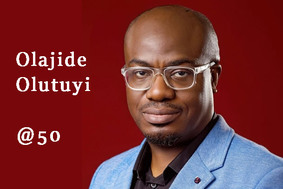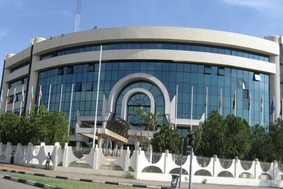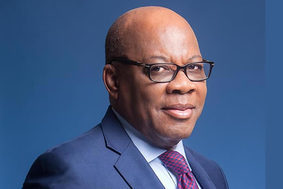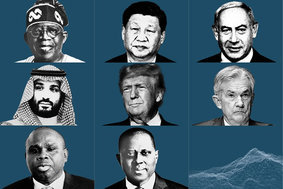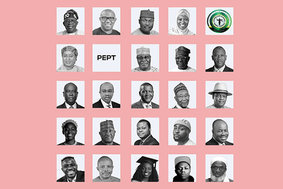The AI threat to open societies
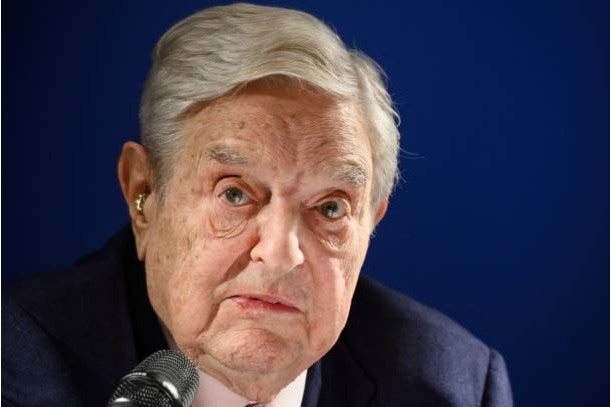
Feature Highlight
In an age of populist nationalism, open societies have increasingly come under strain. But the threat of atavistic ideological movements pales in comparison to that posed by powerful new technologies in the hands of authoritarians.
I want to warn the world about an unprecedented danger that’s threatening the very survival of open societies.
The rapidly improving instruments of control that machine learning and artificial intelligence can produce are giving repressive regimes an inherent advantage. For them, the improving instruments of control are a help; for open societies they constitute a mortal danger.
I’ll focus on China, where President Xi Jinping wants a one-party state to reign supreme. Xi is trying to consolidate all the available information about a person into a centralized database to create a “social credit system.” Based on these data, people will be evaluated by algorithms that will determine whether they pose a threat to the one-party state. People will then be treated accordingly.
The social credit system is not yet fully operational, but it’s clear where it’s heading. It will subordinate the fate of the individual to the interests of the one-party state in unprecedented ways.
I find the social credit system frightening and abhorrent. Unfortunately, some Chinese find it rather attractive, because it provides information and services that are not currently available, and can also protect law-abiding citizens against enemies of the state.
China is not the only authoritarian regime in the world, but it is undoubtedly the wealthiest, strongest, and most developed in machine learning and artificial intelligence. This makes Xi the most dangerous opponent of those who believe in the concept of open society. But Xi is not alone. Authoritarian regimes are proliferating all over the world, and if they succeed, they will become totalitarian.
As the founder of the Open Society Foundations, I have devoted my life to fighting totalizing, extremist ideologies, which falsely claim that the ends justify the means. I believe that the desire of people for freedom cannot be repressed forever. But I recognize that open societies are profoundly endangered at present.
I use “open society” as shorthand for a society in which the rule of law prevails over rule by a single individual, and where the role of the state is to protect human rights and individual freedom. In my view, an open society should pay special attention to those who suffer from discrimination or social exclusion and those who cannot defend themselves.
How can open societies be protected if these new technologies give authoritarian regimes a built-in advantage? That’s the question that preoccupies me. It should also preoccupy all those who prefer to live in an open society.
In Search of Open Society
My deep concern for this issue arises from my personal history. I was born in Hungary in 1930, and I am Jewish. I was 13 years old when the Germans occupied Hungary and started deporting Jews to extermination camps. I was very fortunate because my father understood the nature of the Nazi regime and arranged false identity papers and hiding places for all members of his family, and for a number of other Jews as well. Most of us survived.
The year 1944 was the formative experience of my life. I learned at an early age how important it is what kind of political regime prevails. When the Nazi regime was replaced by Soviet occupation, I left Hungary as soon as I could and found refuge in England.
At the London School of Economics, I developed my conceptual framework under the influence of my mentor, Karl Popper. That framework proved to be unexpectedly useful when I later found a job in the financial markets. The framework had nothing to do with finance, but is based on critical thinking. This allowed me to analyze the deficiencies of the prevailing theories guiding institutional investors. I became a successful hedge fund manager, and I prided myself on being the world’s highest-paid critic.
Running a hedge fund was very stressful. When I had made more money than I needed for myself or my family, I underwent a kind of midlife crisis. Why should I kill myself to make more money? I reflected long and hard on what I really cared about, and in 1979 I set up the Open Society Fund. I defined its objectives as helping to open up closed societies, reduce the deficiencies of open societies, and promote critical thinking.
My first efforts were directed at trying to undermine the apartheid system in South Africa. Then I turned my attention to opening up the Soviet system. I set up a joint venture with the Hungarian Academy of Sciences, which was under Communist control, but its representatives secretly sympathized with my efforts. This arrangement succeeded beyond my wildest dreams. I got hooked on what I like to call “political philanthropy.” That was in 1984.
In the years that followed, I tried to replicate my success in Hungary and in other Communist countries. I did rather well in the Soviet empire, including the Soviet Union itself, but it was a different story in China.
Dictatorship with Chinese Characteristics
My first effort in China looked rather promising. It involved an exchange of visits between Hungarian economists who were greatly admired in the Communist world, and a team from a newly established Chinese think tank whose members were eager to learn from the Hungarians.
Based on that initial success, I proposed to Chen Yizi, the leader of the think tank, to replicate the Hungarian model in China. Chen obtained the support of Premier Zhao Ziyang and his reform-minded policy secretary, Bao Tong. A joint venture called the China Fund was inaugurated in October 1986. It was an institution unlike any other in China. On paper, it had complete autonomy.
Bao was its champion. But the opponents of radical reform, who were numerous, banded together to attack him. They claimed that I was a CIA agent and asked the internal security agency to investigate. To protect himself, Zhao replaced Chen with a high-ranking official in the external security police. Because the two organizations were co-equal, they couldn’t interfere in each other’s affairs.
I approved this change because I was annoyed with Chen for awarding too many grants to members of his own institute, and I was unaware of the political infighting behind the scenes. But applicants to the China Fund soon noticed that the organization had come under the control of the political police and started to stay away. Nobody had the courage to explain to me the reason for it.
Eventually, a Chinese grant recipient visited me in New York and told me – at considerable risk to himself – what had happened. Soon thereafter, Zhao was removed from power, and I used that as an excuse to close the foundation. This happened just before the Tiananmen Square massacre in 1989, and it left a “black spot” on the record of the people associated with the foundation. They went to great length to clear their names. Eventually, they succeeded.
In retrospect, it is clear that I made a mistake in trying to establish a foundation, which operated in ways that were alien to people in China. At that time, giving a grant created a sense of obligation between the donor and recipient and obliged both of them to remain loyal to each other forever.
The Betrayal of Reform
So much for history. Let’s turn to developments that have occurred just in the last year, some of which surprised me.
When I first started visiting China, I met many people in positions of power who were fervent believers in the principles of open society. In their youth, they had been deported to the countryside to be re-educated, often suffering hardships far greater than mine in Hungary. But we had much in common. We had all been on the receiving end of a dictatorship.
They were eager to hear from me about Popper’s thoughts on the open society. While they found the concept very appealing, their interpretation remained somewhat different from mine. They were familiar with Confucian tradition, but there was no tradition of voting in China. Their thinking remained hierarchical, not egalitarian, and carried a built-in respect for high office. I, on the other hand, wanted everyone to have a vote.
I wasn’t surprised when Xi ran into serious opposition at home; but I was surprised by the form it took. At last year’s leadership convocation at the seaside resort of Beidaihe, Xi was apparently taken down a peg or two. Although there was no official communiqué, the rumour was that the convocation disapproved of the abolition of term limits and the cult of personality that Xi had built around himself.
The committed defenders of open society in China, who are around my age, have mostly retired, and younger people, who are dependent on Xi for promotion, have taken their place. In fact, it was retired leaders like Zhu Rongji who reportedly floated the criticisms of Xi at the Beidaihe meeting.
It’s important to realize that such criticisms were only a warning to Xi about his excesses, but did not reverse the abolition of the two-term limit. Moreover, “Xi Jinping Thought,” which he promoted as his distillation of Communist theory, was elevated to the same level as “Mao Zedong Thought.” So Xi remains the supreme leader, possibly for his lifetime. The ultimate outcome of the current political infighting remains unresolved.
The Open Society and its Advocates
I have been concentrating on China, but open societies have many more enemies, Putin’s Russia foremost among them. And the most dangerous scenario is one in which these enemies conspire with, and learn from, one another in order to oppress their people more effectively.
What can we do to stop them?
The first step is to recognize the danger. That is why I am speaking out. But now comes the difficult part. Those of us who want to preserve the open society must work together and form an effective alliance. We have a task that can’t be left to governments. History has shown that even governments that want to protect individual freedom have many other interests, and they also give precedence to their own citizens’ freedom over the freedom of the individual as an abstract concept.
My Open Society Foundations are dedicated to protecting human rights, especially for those who don’t have a government defending them. When we started four decades ago, many governments supported our efforts. Unfortunately, their ranks have thinned. The United States and Europe, once our strongest allies, are preoccupied with their own problems now.
Therefore, I want to focus on what I consider the most important question for open societies: what will happen in China?
Only the Chinese people can answer the question. All we can do is to draw a sharp distinction between them and Xi. Since Xi has declared his hostility to open society, the Chinese people become the main source of hope.
And there are, in fact, grounds for hope. As some China specialists have explained to me, there’s a Confucian tradition according to which the emperor’s advisers are expected to speak out when they strongly disagree with one of his actions or decrees, knowing full well that it may result in exile or even execution. This came as a great relief to me when I was on the verge of despair. It means that a new political elite has emerged that is willing to uphold the Confucian tradition, and that Xi will continue to have opponents in China.
The Unravelling Silk Road
Xi presents China as a role model for other countries to emulate, but he’s facing criticism abroad as well. His Belt and Road Initiative (BRI) has been in operation long enough to reveal its deficiencies. For one thing, it was designed to promote the interests of China, not the interests of the recipient countries. Moreover, its ambitious infrastructure projects were financed mainly by loans, not by grants, and foreign officials were often bribed to accept them. And many of these projects have proven to be economically unsound.
The iconic case is in Sri Lanka. China loaned the Sri Lankans the money to pay China to build a port that serves China’s strategic interests. But the port failed to attract sufficient commercial traffic to enable the Sri Lankans to service the debt, enabling China to take possession of the port. There are several similar cases elsewhere, and they are causing resentment.
Malaysia is leading the pushback. The previous government, headed by Najib Razak, sold out to China. But in May 2018, Najib was voted out of office by a coalition led by Mahathir Mohamed. Mahathir’s government immediately stopped several big infrastructure projects being carried out by Chinese companies and is currently negotiating how much Malaysia will still have to pay China.
The situation is not as clear in Pakistan, which has been the largest recipient of Chinese investments. The Pakistani army is fully beholden to China, but the position of Imran Khan, who became prime minister last August, is more ambivalent. At the beginning of 2018, China and Pakistan announced grandiose plans for military cooperation. By the end of the year, Pakistan was in a deep financial crisis. But one thing became evident: China intends to use the BRI for military purposes as well.
All of these setbacks have forced Xi to modify his attitude toward the BRI. In September, he announced that “vanity projects” will be shunned in favour of more carefully conceived initiatives, and in October, the People’s Daily warned that projects should serve the interests of the recipient countries.
Customers are now forewarned, and several of them, ranging from Sierra Leone to Ecuador, are questioning or renegotiating projects. Xi has also stopped talking about “Made in China 2025,” which had been the centrepiece of his self-promotion a year earlier.
Containment 2.0?
Most important, the US government has now identified China as a “strategic rival.” President Donald Trump is notoriously unpredictable, but this decision was the result of a carefully prepared strategic plan. Since then, Trump’s idiosyncratic behaviour has been largely superseded by a China policy adopted by the agencies of the administration and overseen by the National Security Council Asian affairs adviser, Matthew Pottinger, and others. The policy was outlined in a seminal speech by Vice President Mike Pence on October 4, 2018.
Even so, declaring China a strategic rival is too simplistic. China is an important global actor. An effective policy toward China cannot be summed up in a generalization. It needs to be far more sophisticated, detailed, and practical; and it must include a US economic response to the BRI. The Pottinger plan doesn’t spell out whether its ultimate goal is to level the playing field or to disengage from China.
Xi fully understood the threat that the new US policy posed for his leadership. He gambled on a personal meeting with Trump at the G20 meeting in Buenos Aires on December 1. In the meantime, the danger of a global trade war escalated, and a sharp sell-off in the stock market began, creating problems for the Trump administration, which had focused all of its energy and attention on the midterm elections the previous month. When Trump and Xi met, both sides were eager for a deal. So they reached one, though what they agreed – a 90-day truce – is very inconclusive.
But there are clear indications that a broad-based economic decline is in the making in China, which is affecting the rest of the world. A global slowdown is the last thing the market wants to see.
The unspoken social contract in China is built on steadily rising living standards. If the decline in the Chinese economy and stock market is severe enough, this social contract may be undermined, and even the business community may end up opposing Xi. Such a downturn could also sound the BRI’s death knell, because Xi may run out of resources to continue financing so many lossmaking investments.
On the broader question of global Internet governance, there is an undeclared struggle between China and the West. China wants to dictate the rules and procedures that govern the digital economy by dominating the developing world with its new platforms and technologies. This is a threat to the freedom of the Internet and open society itself.
Last year, I still believed that China ought to be more deeply embedded in the institutions of global governance, but Xi’s behaviour since then has changed my opinion. My view now is that instead of waging a trade war with practically the whole world, the US should focus on China; instead of letting ZTE and Huawei off lightly, it needs to crack down on them harshly. If these companies came to dominate the 5G market, they would present an unacceptable security risk for the rest of the world.
Regrettably, President Trump seems to be following a different course: make concessions to China and declare victory while renewing his attacks on US allies. This is liable to undermine the US policy objective of curbing China’s abuses and excesses.
A Hopeful Conclusion
Because Xi is the most dangerous enemy of open societies, we must pin our hopes on the Chinese people, and especially on the political elite, which is inspired by the Confucian tradition.
This does not mean that those of us who believe in the open society should remain passive. The reality is that we are in a Cold War that threatens to turn into a hot one. On the other hand, if Xi and Trump were no longer in power, an opportunity would present itself to develop greater cooperation between the two cyber-superpowers.
It’s possible to dream of something similar to the United Nations Treaty at the end of World War II. This would be the appropriate ending to the current cycle of conflict between the US and China. It would reestablish international cooperation and allow open societies to flourish.
George Soros is Chairman of Soros Fund Management and Chairman of the Open Society Foundations. A pioneer of the hedge-fund industry, he is the author of many books, including The Alchemy of Finance, The New Paradigm for Financial Markets: The Credit Crisis of 2008 and What it Means, and The Tragedy of the European Union. Copyright: Project Syndicate
Other Features
-
At 50, Olajide Olutuyi vows to intensify focus on social impact
Like Canadian Frank Stronach utilised his Canadian nationality to leverage opportunities in his home country of ...
-
Reflection on ECOWAS Parliament, expectations for the 6th Legislature
The 6th ECOWAS Legislature must sustain the initiated dialogue and sensitisation effort for the Direct Universal ...
-
The $3bn private credit opportunity in Africa
In 2021/2022, domestic credit to the private sector as a percentage of GDP stood at less than 36% in sub-Saharan ...
-
Tinubunomics: Is the tail wagging the dog?
Why long-term vision should drive policy actions in the short term to achieve a sustainable Nigerian economic ...
-
Living in fear and want
Nigerians are being battered by security and economic headwinds. What can be done about it?
-
Analysis of the key provisions of the NERC Multi-Year Tariff Order ...
With the MYTO 2024, we can infer that the Nigerian Electricity Supply Industry is at a turning point with the ...
-
Volcanic explosion of an uncommon agenda for development
Olisa Agbakoba advises the 10th National Assembly on how it can deliver on a transformative legislative agenda for ...
-
Nigeria and the world in 2024
Will it get better or worse for the world that has settled for crises?
-
The Movers and Shakers of Nigeria 2023
This special publication profiles 25 people and institutions based on their societal or industry impact in 2023.
Most Popular News
- IFC, partners back Indorama in Nigeria with $1.25 billion for fertiliser export
- Ali Pate to deliver keynote speech at NDFF 2024 Conference
- Univercells signs MoU with FG on biopharmaceutical development in Nigeria
- CBN settles backlog of foreign exchange obligations
- CBN increases capital requirements of banks, gives 24 months for compliance
- Euromonitor forecasts Sub-Saharan Africa GDP to grow to $4.5trn by 2040

